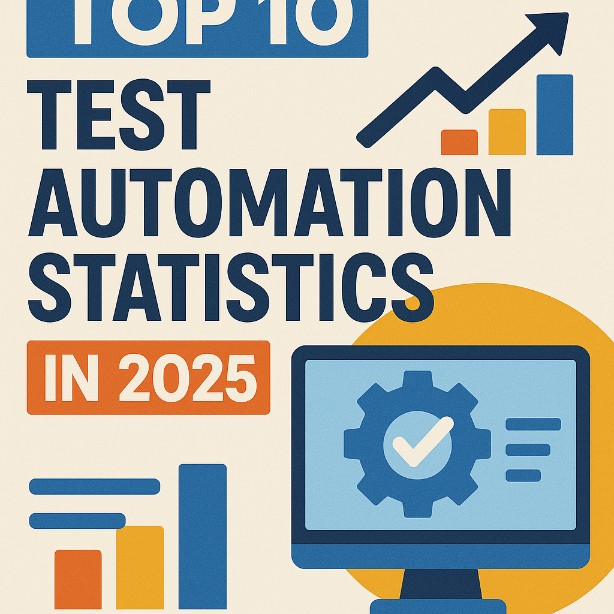Requirements management software is essential for managing project requirements effectively. These tools help teams organize, capture, and track requirements, keeping projects on course and ensuring stakeholder alignment. Whether you’re a non-technical business owner, a software engineer, or a product owner, the right tool can help ensure that your project is delivered successfully.
In this article, we’ll review the 22 best requirements management tools of 2025, ranging from simple to complex solutions. Our list is tailored for students, web agencies, DevOps teams, and businesses of all sizes.
Is Your Infrastructure Ready for Global Traffic Spikes?
Unexpected load surges can disrupt your services. With LoadFocus’s cutting-edge Load Testing solutions, simulate real-world traffic from multiple global locations in a single test. Our advanced engine dynamically upscales and downscales virtual users in real time, delivering comprehensive reports that empower you to identify and resolve performance bottlenecks before they affect your users.
Let’s get started with the top tools!
Quick Overview: The 22 Best Requirements Management Software for 2025
Here’s a snapshot of the best tools we’ll review in more detail:
- LoadFocus Requirements – Comprehensive cloud-based requirements and testing management.
- Jama Connect – Ideal for end-to-end traceability and collaboration.
- Helix RM – Best for regulated industries.
- Visure Requirements – Flexible and customizable.
- ReqSuite® RM – Feature-rich and intuitive interface.
- IBM Engineering Requirements Management DOORS Next – For large enterprises with complex needs.
- Modern Requirements4DevOps – Built into Azure DevOps.
- ClickUp – For project management and requirements tracking.
- Confluence – Documentation and collaboration with Jira integration.
- GatherSpace – Simple and cost-effective.
- Jira Software – For Agile teams.
- ReqView – Ideal for small to medium-sized businesses.
- Innoslate – Perfect for complex systems engineering.
- Aha! – Roadmapping and requirements management.
- SpiraTeam – End-to-end test and requirements management.
- Polarion ALM – For automotive and medical industries.
- Xebrio – From requirements to release management.
- Axiom – Affordable, cloud-based solution.
- ReQtest – For managing requirements and testing.
- TopTeam Analyst – Use case-driven requirements management.
- Blueprint – Advanced modeling and requirements management.
- TraceCloud – Simple and scalable for teams of all sizes.
Now, let’s break these tools down in more detail.
Think your website can handle a traffic spike?
Fair enough, but why leave it to chance? Uncover your website’s true limits with LoadFocus’s cloud-based Load Testing for Web Apps, Websites, and APIs. Avoid the risk of costly downtimes and missed opportunities—find out before your users do!
What Is Requirements Management Software?
Requirements management software helps capture, track, and manage project requirements throughout a project’s lifecycle. These tools improve communication, ensure traceability, and prevent costly mistakes due to misunderstood or forgotten requirements. Whether you’re developing software, working in regulated industries, or managing simple projects, these tools ensure smooth collaboration and project success.
The 22 Best Requirements Management Software for 2025
1. LoadFocus Requirements
Category: Cloud-Based Requirements Management & Testing
Overview:
LoadFocus provides an all-in-one solution for managing both requirements and testing. The cloud-based platform integrates seamlessly with performance and load testing tools, making it a great fit for DevOps teams looking to combine requirements tracking with testing.
Key Features:
- Cloud-based requirements management
- Integrated load testing tools
- Collaboration and reporting tools
Best For: Teams needing integrated requirements and load testing capabilities.
LoadFocus is an all-in-one Cloud Testing Platform for Websites and APIs for Load Testing, Apache JMeter Load Testing, Page Speed Monitoring and API Monitoring!
2. Jama Connect
Category: End-to-End Traceability & Collaboration
Overview:
Jama Connect is widely recognized for its real-time collaboration and traceability features. It’s designed to help large teams manage complex projects while ensuring that all stakeholders stay aligned.
Key Features:
- Requirements and risk management
- Real-time collaboration
- End-to-end traceability
Best For: Large teams requiring traceability across disciplines and project phases.
3. Helix RM
Category: Regulated Industries
Overview:
Helix RM is designed for industries like healthcare and automotive, where compliance is key. It offers detailed audit trails and advanced traceability features to help meet stringent regulatory requirements.
Key Features:
- Compliance management
- Detailed traceability and audit features
Best For: Teams in regulated industries with strict compliance requirements.
4. Visure Requirements
Category: Customizable & Flexible
Overview:
Visure Requirements offers highly customizable workflows that suit both Agile and Waterfall project methodologies. Its flexibility makes it ideal for teams needing adaptable tools to meet various project requirements.
Key Features:
- Fully customizable workflows
- Integration with multiple tools
Best For: Teams needing customizable workflows that can adapt to various project methodologies.
5. ReqSuite® RM
Category: Feature-Rich & Intuitive
Overview:
ReqSuite® RM combines a feature-rich interface with ease of use, making it accessible to both large enterprises and smaller teams. It includes tools for traceability, versioning, and impact analysis.
Key Features:
- Intuitive user interface
- Versioning and change management
Best For: Teams looking for a feature-rich tool that’s easy to use.
6. IBM Engineering Requirements Management DOORS Next
Category: Enterprise-Level Tool
Overview:
DOORS Next is designed for large enterprises and handles complex requirements management for multi-team projects. It offers advanced configuration management and scalability, making it perfect for extensive projects.
Key Features:
- Advanced configuration management
- Enterprise-level scalability
Best For: Large organizations managing extensive, multi-team projects.
7. Modern Requirements4DevOps
Category: Integrated with Azure DevOps
Overview:
Modern Requirements4DevOps is built directly into Azure DevOps, making it a seamless addition to teams that already use Microsoft’s development tools. It provides real-time traceability and integrates with the complete DevOps pipeline, allowing teams to manage requirements from ideation to production.
Key Features:
- Real-time collaboration within Azure DevOps
- Traceability across the entire DevOps lifecycle
- Built-in reporting and compliance management
Best For: Teams that are heavily invested in the Azure DevOps ecosystem and need a requirements management tool that integrates perfectly with their existing workflows.
8. ClickUp
Category: Project Management & Requirements Tracking
Overview:
ClickUp is an all-in-one project management platform that can also handle requirements management. It allows teams to track requirements, collaborate on projects, and stay organized with custom dashboards, making it ideal for Agile and Waterfall project methodologies.
Key Features:
- Customizable workflows and dashboards
- Task tracking and management
- Collaboration tools with comments and file sharing
Best For: Teams that want a project management tool with built-in requirements tracking and a focus on flexibility.
9. Confluence
Category: Documentation & Collaboration with Jira Integration
Overview:
Confluence by Atlassian is a widely used documentation platform that integrates seamlessly with Jira. This combination provides teams with a robust environment for managing both project documentation and requirements. You can create and link requirements documents directly with Jira issues, streamlining the requirements gathering process.
Key Features:
- Rich-text documentation with support for multimedia
- Direct integration with Jira
- Collaborative editing
Best For: Teams that use Jira and need a place to document and manage requirements and other project information.
10. GatherSpace
Category: Simple & Cost-Effective
Overview:
GatherSpace is a simple and affordable option for small businesses and startups looking to manage project requirements without the complexities of more enterprise-level tools. It provides basic requirements tracking and collaboration features.
Key Features:
- Simple requirements tracking
- Cost-effective for small teams
- Easy-to-use interface
Best For: Startups and small businesses needing an affordable and straightforward requirements management tool.
11. Jira
Category: Agile Project Management
Overview:
Jira Software is one of the most popular tools for Agile teams. While it’s primarily known for issue tracking and project management, it also supports requirements management when combined with Confluence or additional Jira plugins.
Key Features:
- Agile boards for Scrum and Kanban
- Powerful issue and task tracking
- Integration with Confluence for requirements management
Best For: Agile teams needing a versatile platform for both project management and requirements tracking.
12. ReqView
Category: For Small to Medium-Sized Businesses
Overview:
ReqView is designed for small to medium-sized businesses. It offers a lightweight, simple, and intuitive interface for managing requirements, traceability, and compliance without the heavy overhead of more complex tools.
Key Features:
- Simple and intuitive interface
- Offline and cloud-based versions
- Traceability and change tracking
Best For: SMBs looking for a cost-effective and straightforward requirements management tool.
13. Innoslate
Category: Complex Systems Engineering
Overview:
Innoslate is designed specifically for complex systems engineering projects. It provides comprehensive support for requirements management, modeling, and simulation, making it a favorite for engineering teams working on aerospace, defense, and other large-scale projects.
Key Features:
- Requirements management and modeling
- Lifecycle modeling and simulation
- Collaboration and reporting
Best For: Engineering teams working on complex systems and needing full lifecycle management.
14. Aha!
Category: Roadmapping & Requirements Management
Overview:
Aha! combines roadmapping and requirements management into a single platform. It is perfect for teams that want to align product strategy with day-to-day development. Aha! provides features for product planning, strategy development, and requirements tracking.
Key Features:
- Product roadmapping and planning
- Integrated requirements management
- Collaboration and feedback collection
Best For: Teams needing a tool that combines product roadmapping with requirements tracking.
15. SpiraTeam
Category: End-to-End Test & Requirements Management
Overview:
SpiraTeam offers a complete solution for managing requirements, testing, and project tracking. It is ideal for teams looking for an all-in-one platform that provides traceability from requirements to testing.
Key Features:
- Requirements, test, and defect management
- Real-time dashboards and reporting
- Full traceability and compliance
Best For: Teams needing an end-to-end solution that covers requirements through to testing.
16. Polarion ALM
Category: For Automotive & Medical Industries
Overview:
Polarion ALM is a lifecycle management tool that is widely used in automotive, medical devices, and regulated industries. It provides comprehensive requirements management with traceability and compliance features.
Key Features:
- Compliance management for regulated industries
- Traceability and audit trails
- End-to-end lifecycle management
Best For: Automotive and medical device teams needing rigorous compliance and traceability.
17. Xebrio
Category: From Requirements to Release Management
Overview:
Xebrio is a complete requirements-to-release management platform that focuses on ensuring traceability throughout the project lifecycle. From gathering requirements to testing and deployment, Xebrio offers an all-in-one platform for managing projects.
Key Features:
- End-to-end project lifecycle management
- Real-time collaboration
- Traceability from requirements to release
Best For: Teams needing full traceability from requirements through to release management.
18. Axiom
Category: Affordable Cloud-Based Solution
Overview:
Axiom provides a cost-effective, cloud-based solution for managing requirements, tasks, and defects. It’s designed for teams that need an affordable yet powerful requirements management tool.
Key Features:
- Cloud-based platform
- Task and requirements tracking
- Cost-effective pricing
Best For: Teams needing an affordable cloud-based requirements management tool.
19. ReQtest
Category: Requirements & Testing Management
Overview:
ReQtest combines requirements management with testing features. It is a great option for teams that need a tool for tracking both requirements and test cases within the same platform.
Key Features:
- Requirements and test case management
- Defect tracking and reporting
- Traceability from requirements to testing
Best For: Teams looking for a dual-purpose tool for both requirements and testing management.
20. TopTeam Analyst
Category: Use Case-Driven Requirements Management
Overview:
TopTeam Analyst is designed for use case-driven projects. It helps teams define and track use cases, along with related requirements. It also supports visual modeling and traceability.
Key Features:
- Use case modeling and requirements tracking
- Visual modeling tools
- Traceability and impact analysis
Best For: Teams that use use cases to drive requirements gathering and development.
21. Blueprint
Category: Advanced Modeling & Requirements Management
Overview:
Blueprint offers advanced features for requirements management, compliance, and process automation. It is particularly useful for teams that need modeling and traceability to meet regulatory requirements.
Key Features:
- Advanced requirements modeling
- Process automation
- Regulatory compliance features
Best For: Teams needing advanced modeling and compliance tools in their requirements management.
22. TraceCloud
Category: Simple & Scalable for Teams of All Sizes
Overview:
TraceCloud is a simple yet scalable requirements management tool that can grow with your team. It offers real-time traceability, collaboration, and reporting to help teams stay on## TraceCloud Overview Continued
track throughout the project lifecycle. It is highly scalable and offers great flexibility for teams of all sizes, from startups to large enterprises, providing traceability and collaboration to manage requirements effectively.
Key Features:
- Real-time traceability
- Scalable for small to large teams
- Collaboration and reporting tools
Best For: Teams needing a scalable and easy-to-use requirements management platform that grows with the organization.
FAQs
What is requirements management software?
It’s a tool designed to help teams track and manage project requirements, ensuring clear communication and alignment among stakeholders.
Is Jira a requirements management tool?
Yes, Jira Software is often used by Agile teams for tracking requirements and managing backlogs. Paired with Confluence, it becomes a powerful tool for managing both requirements and project documentation.
How to analyze requirements?
Start by gathering input from all stakeholders. Break down requirements into manageable tasks, prioritize them, and use tools like Jama Connect or ReqSuite® RM to ensure traceability and alignment across the project lifecycle.
Conclusion
The right requirements management software will depend on your team’s needs. For those who want an integrated approach to both requirements and testing, LoadFocus is an excellent choice. For businesses in regulated industries, tools like Helix RM offer compliance-focused solutions.
Many of these tools also allow you to import templates and customize workflows to fit your team’s processes. You can even leverage AI to assist in managing tasks and subtasks. Explore these options and find the best fit for your team.

![9 Best IT Incident Management Software [2025] 9 Best IT Incident Management Software [2025]](https://loadfocus.com/blog/wp-content/uploads/sites/5/2024/08/it-management-tools.jpg)



